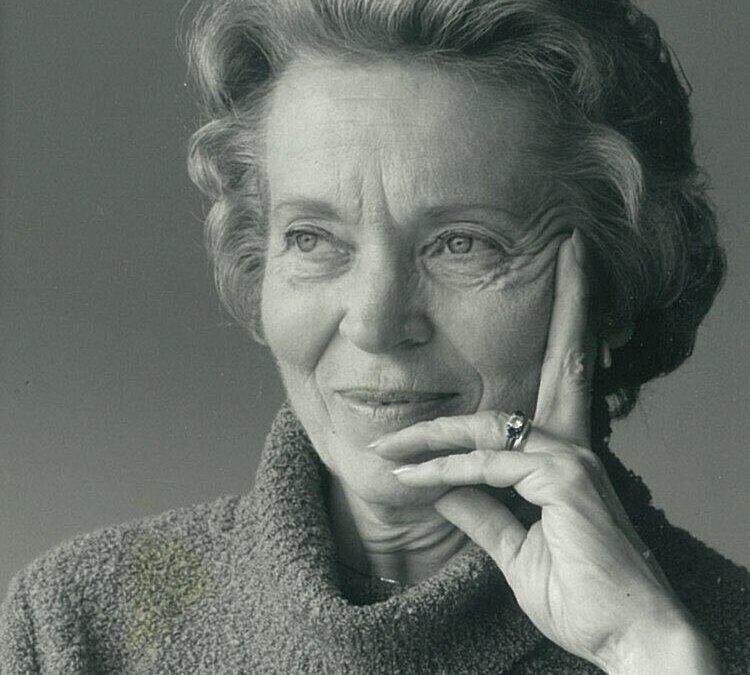Elisabeth Elliot once asked, “Would you like to have the story of Daniel without the lions’ den? … Would you like to have the story of Joseph without all his trials and tribulations, without his going into the pit?”[1]
Elliot could pose such questions because her own story was filled with lions’ dens and dark pits.
Born into a scrupulous New England family in 1926, she was given the name Elisabeth Howard. The Howard home may have been run like a navy ship at sea, but it was also bursting with hymns and Scriptures and missionaries-on-furlough. (Elisabeth sat at the dinner table with the likes of Betty Stam, whose later martyrdom would deeply mark her faith.) Elisabeth grew tall and gangly, shy and measured, with a keen intellect and rugged determination—qualities she would need for the kingdom work God had in store for her.
You know the story well: Elisabeth fell in love with and married a man named Jim Elliot, whose missionary martyrdom at the hands of Waodani (“Auca”) Indians catapulted her into both grief and fame. As a new widow with a toddler, Elisabeth moved in with the fierce tribe that killed her husband, longing to show them the love of Christ. This single act became the most celebrated (and criticized) of her life, but a closer look at her story reveals that most of Elisabeth’s time on the mission field—first as a single woman, then as a married woman, then as a widow and single mother—was anything but celebratory. It consisted largely of confusion, loss, and turmoil.
Elisabeth also suffered the death of a second husband in her middle age, acute loneliness in her many years of singleness, and eventually a slow and cruel death by dementia. But her sufferings are not meant to be the polestar: it is the way she suffered that makes her such a compelling model for us today. She suffered with trust and hope in a good God who makes no mistakes. She wrote,
“It depends on our willingness to see everything in God, receive all from His hand, accept with gratitude just the portion and the cup He offers. Shall I charge Him with a mistake in His measurements or with misjudging the sphere in which I can best learn to trust Him? Has He misplaced me? Is He ignorant of things or people which, in my view, hinder my doing His will? . . . The secret is Christ in me, not me in a different set of circumstances. . . . We can only know that Eternal Love is wiser than we, and we bow in adoration of that loving wisdom.”[2]
While Elliot is best known for her husband’s martyrdom and her courageous ministry to the Waodanis, as well as her bestselling books and worldwide teaching ministry that followed, biographer Ellen Vaughn writes that “her most noble accomplishment was not weathering the excoriating loss [of her husband Jim]. It was practicing—through both the high dramas and the low, dull days that constitute any human life—the daily self-death required for one’s soul to flourish.”[3] Early in life, Elisabeth had resolved to obey God no matter what—not just in the watershed moments, but also in the countless moments of mundanity and tedium. She seemed to value sweeping a dirty floor over speaking to adoring audiences; she embraced the humdrum of daily life over her evangelical fame. For her, “the only measure of any human action came down to one thing: obedience.”[4]
Obedience in mundanity.
Obedience in suffering.
Obedience in… weakness.
Elliot was well acquainted with her own weaknesses. She privately grieved over her reserved nature and emotional inhibitions (which were often misunderstood as rudeness). For all her writing prowess and bestsellers, at times she felt incapable of writing a single meaningful or significant word. She had misgivings about her effectiveness as a missionary. But she didn’t linger long over her frailties. “I know one thing: I shall not find joy at any time in the contemplating of what I am. It will be first in the contemplation of God, and then of those He has put around me.”[5]
Elisabeth Elliot’s story is a remarkable one, not because of her celebrated successes or sufferings, but because she fixed her eyes on Jesus, and loved and obeyed him—day in, day out, through the lions’ dens and the dark pits—till she passed into glory in 2015. For the seasoned missionary on the field, the new missionary-in-training, and the stateside sender-of-missionaries, Elliot’s life models for us a compelling faith that causes us to ask ourselves, “How can I lovingly lay down my life, despite great weakness and tribulation and tedium, so that the gospel reaches the furthest corners of the world?”
[1] Elliot, Suffering is Never for Nothing, 100.
[2] Elliot, Keep A Quiet Heart, 19-20.
[3] Elliot, Becoming Elisabeth Elliot, 13.
[4] Elliot, Becoming Elisabeth Elliot, 259.
[5] Elliot, Becoming Elisabeth Elliot, 230.

Colleen Chao
Editor
Colleen is wife to Eddie and mom to Jeremy. For the past 30 years she has had a burden for God’s glory in the nations, so she counts it pure joy to be a small part of the Radius family.
 We train individuals, couples, and families who are committed to long-term, pioneer church planting among unreached language groups. RADIUS students acquire spiritual, relational, emotional, and moral maturity as well as the physical stamina that will enable them to survive the rigors of cross-cultural work and life.
We train individuals, couples, and families who are committed to long-term, pioneer church planting among unreached language groups. RADIUS students acquire spiritual, relational, emotional, and moral maturity as well as the physical stamina that will enable them to survive the rigors of cross-cultural work and life.
 Do you desire to take the Gospel to those who have never heard and see a healthy church established? Apply today for our immersive training program.
Do you desire to take the Gospel to those who have never heard and see a healthy church established? Apply today for our immersive training program. Are you interested in learning first-hand about RADIUS training and whether or not it is a good fit for you or your people? Join us for RADIUS Days to see campus, sit in on classes, and interact with current students, interns, and staff.
Are you interested in learning first-hand about RADIUS training and whether or not it is a good fit for you or your people? Join us for RADIUS Days to see campus, sit in on classes, and interact with current students, interns, and staff. Come to one of our campuses in Mexico for a week-long, intensive program to serve via various campus work projects, learn more about The Great Commission, and get a taste of what our students experience during their year with us.
Come to one of our campuses in Mexico for a week-long, intensive program to serve via various campus work projects, learn more about The Great Commission, and get a taste of what our students experience during their year with us. Our friends at Missionary are hosting a conference for young adults and their leaders on June 13-14th, 2025 at NorthCreek Church in Bay Area, CA.
Our friends at Missionary are hosting a conference for young adults and their leaders on June 13-14th, 2025 at NorthCreek Church in Bay Area, CA. Join us for The Radius Conference on October 17-18th, 2025 at RAK Evangelical Church in Ras AL Khaimah, UAE.
Join us for The Radius Conference on October 17-18th, 2025 at RAK Evangelical Church in Ras AL Khaimah, UAE. Spend 9 months in Mexico and play a vital role in The Great Commission through serving our staff and students while gaining valuable cross-cultural experience and opportunities to grow in your faith.
Spend 9 months in Mexico and play a vital role in The Great Commission through serving our staff and students while gaining valuable cross-cultural experience and opportunities to grow in your faith. Would you like to join us in our efforts to further the spread of the Gospel in still-unreached places? Support the work of RADIUS International by donating online.
Would you like to join us in our efforts to further the spread of the Gospel in still-unreached places? Support the work of RADIUS International by donating online. Are you or your church interested in giving towards a special missions opportunity? Learn more about some of our current projects.
Are you or your church interested in giving towards a special missions opportunity? Learn more about some of our current projects. Partner with some of our current students by paying their tuition/room & board.
Partner with some of our current students by paying their tuition/room & board. Reimburse RADIUS for on-campus lodging and/or meals.
Reimburse RADIUS for on-campus lodging and/or meals. Check out our blog for recent posts from our staff, alumni, and ministry partners.
Check out our blog for recent posts from our staff, alumni, and ministry partners. Purchase recommended books from our online bookstore at 10ofthose.com.
Purchase recommended books from our online bookstore at 10ofthose.com.
 Do you desire to take the Gospel to those who have never heard and see a healthy church established? Do you think RADIUS might be a good fit for you? Apply today!
Do you desire to take the Gospel to those who have never heard and see a healthy church established? Do you think RADIUS might be a good fit for you? Apply today!
 Interested in working with RADIUS? Learn more about open positions.
Interested in working with RADIUS? Learn more about open positions.



